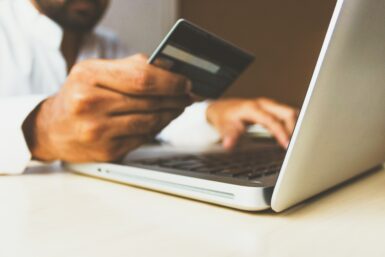With Black Friday approaching, it can be very easy to be persuaded to buy things with all the deals advertised, however it is also important to be mindful. Studies into Black Friday deals have found that only around 14% of deals offered a genuine discount. Furthermore, through analysing prices of products every day for 6 months, a study found that 86% of items were cheaper or the same as their Black Friday price. It is therefore very easy to spend money on Black Friday deals when we are presented with a good deal however, it is important to keep those statistics in mind.
What is shopping addiction?
Black Friday can be triggering for individuals who suffer with a shopping addiction, also known as oniomania, pathological buying or compulsive buying. Statistics show that compulsive buying disorder affects between 8-16% of the UK population and with individuals being able to shop online, more people are at risk of developing compulsive buying disorder. Shopping addiction is characterized as an impulse-control issue which is like gambling or binge eating for example. People with oniomania feel like they constantly need to be spending money, either on themselves or others and do this because of the rush of dopamine they feel after completing a purchase.

What causes a shopping addiction?
Studies show that individuals develop shopping addictions because they get addicted to the feeling their brain feels while they shop. Throughout a shopping trip, your brain will release endorphins and dopamine which are feelings of happiness, and it is those feelings that individuals get addicted to. The addiction develops as once the purchase is completed, the feelings of pleasure and happiness will start to rapidly decline and they will therefore repeat the cycle of purchasing something else to experience the same high feeling again.
Another way that shopping addiction habits can develop is through the ‘treating yourself’ mindset. After accomplishing something or feeling like they’ve been overloaded with work, sometimes individuals feel like they deserve a treat. If people start to feel like they deserve a treat more often, they can start buying more often which can lead to a shopping addiction. With shopping now being accessible online, it is a lot easier to buy more as you can do it from the comfort of your home. Furthermore, social media also encourages a ‘treat yourself’ mindset as studies report 1 in 5 consumers have bought something online after being encouraged to through social media.
Loneliness has also been found to have an impact on shopping addiction as people who do not feel like they have close and meaningful relationships feel like they have a void that needs filling and they do so by shopping. They use shopping as an attempt to substitute material goods for emotional fulfilment and they also feel like they have something to look forward to as they wait for their shopping (if bought online) to arrive. Furthermore, if they are lonely and feel like they have no one to contact, they can use scrolling through online sites as an excuse to be on their phones to fill a void they feel is present through having little to no communication online with others.

What are the symptoms indicating a person being addicted to shopping?
Shopping addiction can present itself in various ways. There are a few questions individuals can ask themselves to see if they are affected in any way such as:
- How much time do you spend scrolling through shopping or bidding sites? Does it distract you from priorities such as work and family?
- Are you collecting things you don’t really need?
- Do you hide your purchases and card statements?
- Have you made attempts at cutting down shopping habits, such as deleted apps, and been unsuccessful at cutting down?
- Is your shopping having a negative impact on your finances?
If you are worried someone you know has a shopping addiction, here are some symptoms to look out for:
- Obsess with making daily or weekly purchases
- Shop to cope with stress
- Open new credit card accounts to keep up with their spending
- Feel intense excitement after buying something
- Buy unnecessary things
- Feel regret yet still continue to shop
- Unable to pay off debt or manage their money
- Fail in attempts to stop compulsive shopping
How do I stop shopping addiction?
There are a few ways individuals can get help and get better from suffering a shopping addiction. The first and most important step is for the individual to recognise and accept that they have an addiction. There are a number of different treatment options you can try such as psychology, therapy and sometimes medication. When using psychology, the individual may find that there are other reasons for their behaviour being influenced as compulsive buying can also be linked to conditions such as obsessive-compulsive disorder, depression and bipolar.
There are also other ways that you can try and limit spending such as:
- Finding other ways to enjoy your leisure time
- Ask someone else to take responsibility for shopping for essential items such as food
- Get rid of credit cards
- Shopping with friends and family who do not encourage impulsive buying
It is very easy to be tempted by shopping deals, especially around Black Friday and Cyber Monday. A great piece of advice for mindful shopping comes from financial expert Martin Lewis who stated, ‘if you were going to buy it anyway and its half price you’ve saved 50%, if you weren’t going to buy it and you did because it was half price, you’ve wasted 100%’. It is important to take a step back and re-evaluate whether you need that item before completing a purchase.
For more information on price comparison websites and Black Friday deals visit www.moneysavingexpert.com/deals/black-friday-and-cyber-monday-alert-service/.
If you feel like you need professional help, we are a private mental health hospital in Windsor with nurses on hand 24 hours a day who provide expert clinical treatment. Research has found that 1 in 4 people will experience a mental health problem of some kind each year in England and we are here to ensure you do not have to face it alone. For more information visit https://cardinalclinic.co.uk/ or call 01753 869755 for help and advice.


